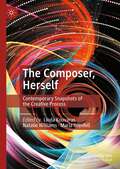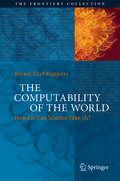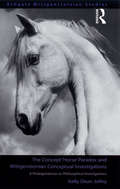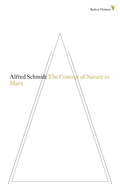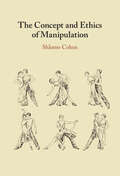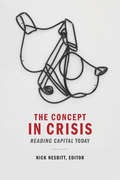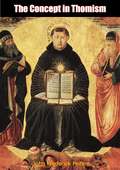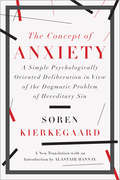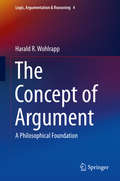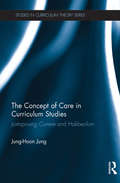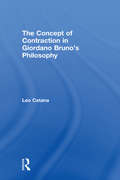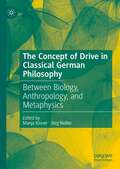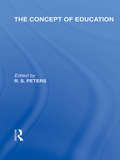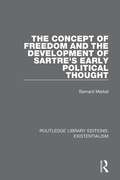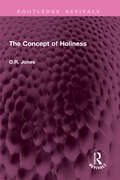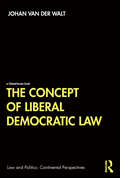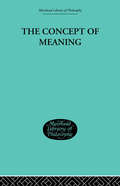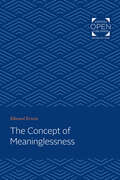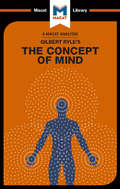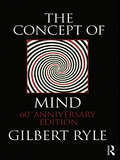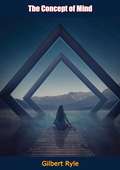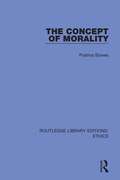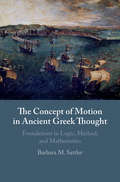- Table View
- List View
The Complexity of Self Government
by Ruth LaneThe Complexity of Self Government represents a revolutionary approach to political science. Bottom-up theory turns political and social analysis upside down by focusing analytic attention not on vacuous abstractions but on the individual men and women who either consciously or inadvertently create the institutions within which they live. Understanding this practical level of human activity is made possible through complexity theory, recently developed in computer models, but of wider use in understanding everyday human behaviour. To this complexity framework, the book adds social science to give life and colour to the analytical picture: micro-sociology from Garfinkel and Goffman, anthropology from Bourdieu, and non-technical game theory based on Thomas Schelling's microanalytics, to give rigour and bite. Theoretical examples include India's Mumbai, Iran, the marshes of southern Iraq, Berlusconi's Italy, backcountry China, Zimbabwe, and Nelson Mandela's revolution in South Africa.
The Composer, Herself: Contemporary Snapshots of the Creative Process
by Natalie Williams Linda Kouvaras Maria GrenfellThis edited volume presents 27 original essays by living composers from all around the globe, reflecting on the creation of their music. Coterminous to the recent worldwide resurgence in feminist focus, the distinctive feature of this collection is the “snapshots” of creative processes and conceptualizing on the part of women who write music, writing in the present day, from prominent early-career composers to major figures, from a range of ethnic backgrounds in the contemporary music field. The chapters step into the juncture point at which feminism finds itself: as binary conceptions of gender are being dissolved, with critiques of the attendant gender-based historical generalizations of composers, and with the growing awareness of the rightful place of First Nations' cultural voices, the contributors explore what, actually, is being composed by women, and what they think about their world. The needs that this book serves are acutely felt: despite recent social gains, and sector initiatives and programs encouraging and presenting the work of women who compose music, their works are yet to receive commensurate exposure with that of their male counterparts. In its multi-pronged, direct response to this dire situation, this vibrant volume highlights established as well as emerging women composers on the international stage; reveals myriad issues around feminism, as broadly conceived; and gives insights, from the composers' own voices, on the inner workings of their composition process.The volume thus presents a contemporary moment in time across the generations and within developments in musical composition. With its unique insights, this book is essential for academics and practitioners interested in the illuminations of the current working landscape for creative women.
The Computability of the World: How Far Can Science Take Us? (The Frontiers Collection)
by Bernd-Olaf Küppers Paul WoolleyIn this thought-provoking book Küppers, an internationally renowned physicist, philosopher and theoretical biologist, addresses a number of science's deepest questions: Can physics advance to the origin of all things and explain the unique phenomena of life, time and history? Are there unsolvable enigmas of the world? How did life originate? Is language a general phenomenon of Nature? What is time? Is it possible to express the history of the world in formulae? Where is science leading us? These and other provocative questions essential for a deeper understanding of the world are treated here in a refreshing and stimulating manner.
The Conative Connection: Uncovering the Link Between Who You Are and How You Perform
by Kathy KolbeKolbe identifies four modes of action, which each individual has in varying amounts. You use each mode at least some of the time, but you probably use one or more primarily and avoid another. Are you predominantly a Fact Finder, careful to research a problem before responding? Or are you a Follow Thru, for whom systems are the answer? Perhaps you're a Quick Start, spontaneous and innovative in your solutions. Or an Implementor, relishing demonstration and tangible results. You don't have to change the way you are to improve your performance. Kolbe shows you how to predict what you and other people will and won't do.
The Concept 'Horse' Paradox and Wittgensteinian Conceptual Investigations: A Prolegomenon to Philosophical Investigations (Ashgate Wittgensteinian Studies)
by Kelly Dean JolleyIn The Foundations of Arithmetic, Gottlob Frege contended that the difference between concepts and objects was absolute. He meant that no object could be a concept and no concept an object. Benno Kerry disagreed; he contended that a concept could be an object, and that therefore the difference between concepts and objects was only relative. In this book, Jolley aims to understand the debate between Frege and Kerry. But Jolley's purpose is not so much to champion either side; rather, it is to utilize an understanding of the debate to shed light on the work of Ludwig Wittgenstein-and vice versa. Jolley not only sifts through the debate between Frege and Kerry, but also through subsequent versions of the debate in J. J. Valberg and Wilfred Sellars. Jolley's goal is to show that the central notion of Philosophical Investigations, that of a 'conceptual investigation', is a legacy of the Frege/Kerry debate and also a contribution to it. Jolley concludes that the difference between concepts and objects is as absolute in its way in Philosophical Investigations as it was in The Foundations of Arithmetic and that recognizing the absoluteness of the difference in Philosophical Investigations provides a beginning for a 'resolute' reading of Wittgenstein's book.
The Concept Of Nature In Marx
by Alfred SchmidtIn The Concept of Nature in Marx, Alfred Schmidt examines humanity's relation to the natural world as understood by the great philosopher-economist Karl Marx, who wrote that human beings are 'part of Nature yet able to stand over against it; and this partial separation from Nature is itself part of their nature'. In Marx, industry and science are the mediation between historical man and external nature, leading either to reconciliation or mutual annihilation. Schmidt explores this tension between man and nature in Marx and shows how his understanding of nature is reflected in the work of writers such as Bertolt Brecht, Walter Benjamin and Ernst Bloch.
The Concept and Ethics of Manipulation
by Shlomo CohenEveryone is exposed to manipulation daily, and everyone manipulates too. The impact of manipulations in personal, social, and political life is enormous. Is this tragic? Is it avoidable? Is it always morally bad or regrettable? To answer these questions, we need a theory of manipulation. This book is the first comprehensive philosophical theory of manipulation. Shlomo Cohen offers a new theory on what manipulation is, distinguishing it from other kinds of influence, and assesses the basic moral status of manipulation. In contrast to prevailing views, he argues that manipulation, though often morally bad, is not inherently morally bad, and that alongside its dangers, it has a central role as a 'lubricant' of social frictions which helps to regulate social and political relations. His analysis offers a window to better understanding the ethics of the interplay of reason and power in human relations.
The Concept in Crisis: Reading Capital Today
by Nick NesbittThe publication of Reading Capital—by Louis Althusser, Étienne Balibar, Roger Establet, Pierre Macherey, and Jacques Rancière—in 1965 marked a key intervention in Marxist philosophy and critical theory, bringing forth a stunning array of concepts that continue to inspire philosophical reflection of the highest magnitude. The Concept in Crisis reconsiders the volume’s reading of Marx and renews its call for a critique of capitalism and culture for the twenty-first century. The contributors—who include Alain Badiou, Étienne Balibar, and Fernanda Navarro—interrogate Althusser's contributions in particular within the context of what is surely the most famous collective reading of Marx ever undertaken. Among other topics, they offer a symptomatic critique of Althusser; consider his writing as a materialist production of knowledge; analyze the volume’s conceptualization of value and crisis; examine how leftist Latin American leaders like Che Guevara and Subcomandante Marcos engaged with Althusser and Reading Capital; and draw out the volume's implications and use for feminist theory and praxis. Retrieving the inspiration that drove Althusser's reinterpretation of Marx, The Concept in Crisis explains why Reading Capital's revolutionary inflection retains its critical appeal, prompting readers to reconsider Marx's relevance in an era of neoliberal capitalism. Contributors. Emily Apter, Alain Badiou, Étienne Balibar, Bruno Bosteels, Adrian Johnston, Warren Montag, Fernanda Navarro, Nick Nesbitt, Knox Peden, Nina Power, Robert J. C. Young
The Concept in Thomism
by John Frederick PeiferOf all the problems, or rather mysteries, with which philosophy deals, those concerned with the nature and objectivity of human knowledge hold a privileged position.In The Concept in Thomism this problem, stemming from Descartes, is clearly and forcefully stated. Thus, from the very beginning, the reader is made aware of the central difficulty faced by any theory of knowledge.The Cartesian and Kantian phases in the development of a satisfactory theory are briefly but adequately described. Then, John Peifer sets forth the reconciliation of both the immanence and transcendence of knowledge as explained by the realistic traditions originating with Aristotle and Thomas Aquinas.The differences between mere physical and psychic changes and the conditions required for knowing are explained in detail. The often misunderstood doctrine of the species, its nature and necessity, is wonderfully developed and shown to be a cognitional necessity.The most important part of this work, however, is concerned with the role of the concept in knowledge. The correct notion of the objective concept, so long neglected, is shown to be the key for a realistic philosophical doctrine. This study alone makes The Concept in Thomism a work of exceeding importance for future philosophers and thinkers.
The Concept of Anxiety: A Simple Psychologically Oriented Deliberation in View of the Dogmatic Problem of Hereditary Sin
by Alastair Hannay Soren KierkegaardThe first new translation of Kierkegaard's masterwork in a generation brings to vivid life this essential work of modern philosophy. Brilliantly synthesizing human insights with Christian dogma, Soren Kierkegaard presented, in 1844, The Concept of Anxiety as a landmark "psychological deliberation," suggesting that our only hope in overcoming anxiety was not through "powder and pills" but by embracing it with open arms. While Kierkegaard's Danish prose is surprisingly rich, previous translations--the most recent in 1980--have marginalized the work with alternately florid or slavishly wooden language. With a vibrancy never seen before in English, Alastair Hannay, the world's foremost Kierkegaard scholar, has finally re-created its natural rhythm, eager that this overlooked classic will be revivified as the seminal work of existentialism and moral psychology that it is. From The Concept of Anxiety: "And no Grand Inquisitor has such frightful torments in readiness as has anxiety, and no secret agent knows as cunningly how to attack the suspect in his weakest moment, or to make so seductive the trap in which he will be snared; and no discerning judge understands how to examine, yes, exanimate the accused as does anxiety, which never lets him go, not in diversion, not in noise, not at work, not by day, not by night."
The Concept of Argument
by Harald R. WohlrappArguing that our attachment to Aristotelian modes of discourse makes a revision of their conceptual foundations long overdue, the author proposes the consideration of unacknowledged factors that play a central role in argument itself. These are in particular the subjective imprint and the dynamics of argumentation. Their inclusion in a four-dimensional framework (subjective-objective, structural-procedural) and the focus on thesis validity allow for a more realistic view of our discourse practice. Exhaustive analyses of fascinating historical and contemporary arguments are provided. These range from Columbus's advocacy of the Western Passage to India, over the trial of King Louis XVI during the French Revolution, to today's highly charged controversies surrounding euthanasia and embryo research. Excavating foundational issues such as the purpose of argument itself (assent of an audience or critical examination of validity claims) and the contested role of argument as a generator of knowledge, the book culminates in a discussion of the relationship between rationality and reasonableness and criticizes the restrictions of 'rational' argument relying on fixed logical, economic or cultural criteria that in reality are mutable. Here, a true, open argument requires the infusion of Paul Lorenzen's principle of 'transsubjectivity', which recognizes but transcends the partiality of the individual and which can be seen in the pragmatic and expanding consensus that humanity can control itself to safeguard the future of a fragile, damaged world.
The Concept of Care in Curriculum Studies: Juxtaposing Currere and Hakbeolism (Studies in Curriculum Theory Series #38)
by Jung-Hoon JungThe question at the heart of the book is what might an education with self-care and care-for-others look like? Juxtaposing self-understanding through the method of currere and the historical character of hakbeolism (a concept indigenous to Korea referring to a kind of social status people achieve based on a shared academic background), this book articulates how subjective reconstruction of self in conjunction with historical study can be transformative, and how this can be extended to social change. Articulating how having one’s own standard can be a way of making one’s life a work of art, the author looks at how Korean schooling exercises coercive care, disconfirmation, and the "whip of love" for the children’s own good. Emphasis is given to the internalized status of these practices in both students and teachers and to teachers’ and parents’ culpability not only in exercising but also in reproducing these practices through themselves. Going beyond describing and analysing the educational problem of academic (intellectual) achievement-oriented education based on aggressive competition, this book suggests ways to address these issues through autobiography (using the method of currere to reconstruct one’s subjectivity) and an ethic of care.
The Concept of Contraction in Giordano Bruno's Philosophy
by Leo CatanaThrough the concept of contraction, Giordano Bruno (1548-1600) endeavoured to explain the relationship of God to his Creation in a way that conformed with his pantheistic view of nature as well as his heterodox view of man’s relationship to God. The concept of contraction is twofold. In the ontological sense it denotes the way in which the One, or God, descends to multiplicity. In the noetic sense it accounts for the ways in which the individual human soul ascends towards God through a reversed process of contemplation. Bruno denied the efficacy of the several psychical, psychological and medical states traditionally thought to aid contemplation and noetic ascent towards God. In his view the only means was philosophical contemplation, the use of memory being one important form. Philosophical contemplation elevated the mind from the fragmented multiplicity of sense impressions to an understanding of the principles governing the sensible world. This publication is the first book-length study dedicated to concept of contraction in Bruno’s philosophy. Moreover, it explores his sources for this concept. Traditionally Ficino’s translation of Plotinus, dating from the second half of the fifteenth century, has been seen as a key source to the Neoplatonism informing Bruno’s philosophy. In The Concept of Contraction in Giordano Bruno’s Philosophy another Neoplatonic source is considered, namely the pseudo-Aristotelian Liber de Causis (Book of causes), which has not yet been examined in the context of Renaissance Neoplatonism. This work, probably written in Arabic in the ninth century, was translated into Latin in the twelfth century and remained well known to many late Medieval and Renaissance philosophers. Catana argues that this work may have prepared for Ficino’s translation of Plotinus, and that in some instances it provided a common source to Renaissance philosophers, Bruno and Nicholas of Cusa (1401-1464) being conspicuous examples discussed in this book.
The Concept of Drive in Classical German Philosophy: Between Biology, Anthropology, and Metaphysics
by Jörg Noller Manja KisnerThis volume gathers a collection of fourteen original articles discussing the concept of drive in classical German philosophy. Its aim is to offer a comprehensive historical overview of the concept of drive at the turn of the 19th century and to discuss it both historically and systematically. From the 18th century onward, the concept of drive started to play an important role in emerging disciplines such as biology, anthropology, and psychology. In these fields, the concept of drive was used to describe the inner forces of organic nature, or, more particularly, human urges and desires. But it was in the period of classical German philosophy that this concept developed into an important philosophical concept crucial to Kant’s and post-Kantian idealistic systems. Reflecting the complexity of this concept, the volume first discusses historical sources of drive theories in Leibniz, Reimarus, and Blumenbach. Afterwards, the volume presents the philosophical accounts of drives in Kant, Fichte, Schelling, and Hegel, and also gives a systematic overview of other important drive theories that were formed around 1800 by Herder, Goethe, Jacobi, Novalis, Reinhold, Schiller, and Schopenhauer.
The Concept of Education (International Library of the Philosophy of Education Volume 17)
by R. S. PetersA series of public lectures given at the Institute of Education, University of London provides the nucleus around which this collection, originally published in 1967, is gathered. This collection provides comprehensive coverage of a complex theme which will be of interest to those involved in the fields of philosophy and education alike. Topics covered include:the logical and psychological aspects of learning, the concept of play, rule and routines, teaching and training, philosophical models of teaching.
The Concept of Freedom and the Development of Sartre's Early Political Thought (Routledge Library Editions: Existentialism #2)
by Bernard MerkelThis book, first published in 1987, is a study of the development of Sartre’s political thought from the late 1920s to the liberation of France in 1944, concentrating particularly upon his concept of freedom. It is argued that the evolution of Sartre’s thinking can be regarded as constituting a series of problematics each of which has a corresponding notion of freedom, and these problematics are elucidated in turn.
The Concept of Holiness (Routledge Revivals)
by O.R. JonesThe Concept of Holiness (1961) examines one of the most distinctively religious concepts in the sphere of Hebrew and Christian belief. The intimate connections between this concept and the associate notions of fear, power, separatedness, wholeness and goodness are carefully unfolded, and the analysis shows that in none of its connections can holiness be fairly understood unless reference is made to the key-concept of divine personality. After giving a suggestive philosophical account of this key-concept by linking it with the notion of a ‘perfect vision’, the author shows how the concept of holiness in its manifold connections is thereby illuminated.
The Concept of Liberal Democratic Law (Law and Politics)
by Johan van Der WaltThis book develops a historical concept of liberal democratic law through readings of the pivotal twentieth century legal theoretical positions articulated in the work of Herbert Hart, Ronald Dworkin, Duncan Kennedy, Rudolf Smend, Hans Kelsen and Carl Schmitt. It assesses the jurisprudential projects and positions of these theorists against the background of a long history of European metaphysics from which the modern concept of liberal democratic law emerged. Two key narratives are central to this history of European political and legal metaphysics. Both concern the historical development of the concept of nomos that emerged in early Greek legal and political thought. The first concerns the history of philosophical reflection on the epistemological and ontological status of legal concepts that runs from Plato to Hobbes (the realist-nominalist debate as it became known later). The second concerns the history of philosophical and political discourses on law, sovereignty and justice that starts with the nomos-physis debate in fifth century Athens and runs through medieval, modern and twentieth century conceptualisations of the relationship between law and power. Methodologically, the reading of the legal theoretical positions of Hart, Dworkin, Kennedy, Smend, Kelsen and Schmitt articulated in this book is presented as a distillation process that extracts the pure elements of liberal democratic law from the metaphysical narratives that not only cradled it, but also smothered and distorted its essential aspirations. Drawing together key insights from across the fields of jurisprudence and philosophy, this book offers an important and original re-articulation of the concept of democratic law.
The Concept of Meaning
by Hill, Thomas EFirst published in 2002. Routledge is an imprint of Taylor & Francis, an informa company.
The Concept of Meaninglessness
by Edward ErwinOriginally published in 1970. Many contemporary philosophers have thought that certain philosophic disputes could be settled by using the concept of meaninglessness. To solve philosophic problems in this way, however, it seemed necessary to provide a reliable criterion for deciding when a particular sentence or statement is meaningless. But devising such a criterion has proved to be very difficult. In fact, in recent years many philosophers have become quite skeptical about the adequacy of the standard criteria of meaninglessness. Some of the more radical skeptics have even argued that the concept of meaninglessness, as it is used by philosophers, is itself defective and would be even if an adequate criterion could be found. Professor Erwin, in a systematic study of the concept of meaninglessness, begins by examining the standard criteria of meaninglessness proposed by philosophers. These criteria include operationalist, verificationist, and type or category criteria. Each of these criteria, he argues, is inadequate. Erwin then turns to the question, What kinds of items, if any, should be said to be meaningless? Most philosophers concerned with this question have claimed that only sentences, not statements or propositions, can be meaningless. Erwin argues, however, that this is wrong: statements (and propositions) can be meaningless. Once this is demonstrated, it can then be shown that the more radical skepticism about the philosophic use of the concept of meaninglessness is misguided. In particular, Erwin shows that the following assertions of the radical skeptic are false: that what is meaningless is relative to a given language or to a given time, and that the concept of meaninglessness forces us to condemn as nonsense metaphors comprehensible to competent speakers of English. In his concluding chapter, Erwin considers the implications of there not being any adequate general criterion of meaninglessness. He then tries to show how the concept of meaninglessness, when interpreted in the manner he suggests, can be profitably used by philosophers, despite the many persuasive objections to its use that philosophers have raised in their disputes over it.
The Concept of Mind
by Michael O'SullivanGilbert Ryle’s 1949 The Concept of Mind is now famous above all as the origin of the phrase “the ghost in the machine” – a phrase Ryle used to attack the popular idea that our bodies and minds are separate. His own position was that mental acts are not at all distinct from bodily actions. Indeed, they are the same thing, merely described in different ways – and if one cuts through the confusing language of the old philosophical debates, he suggests, that becomes clear. While, in many ways, modern philosophers of mind have moved on from or discarded Ryle’s actual arguments, The Concept of Mind remains a classic example of two central critical thinking skills: interpretation and reasoning. Ryle was what is known as an “ordinary language” philosopher – a school who considered many philosophical problems to exist purely because of philosophical language. He therefore considered his task as a philosopher to be one of cutting through confusing language, and clarifying matters – exemplifying the critical thinking skill of interpretation at its best. Rather than adding to philosophical knowledge as such, moreover, he saw his role as one of mapping it – giving it what he called a “logical geography.” As such, The Concept of Mind is also all about reasoning: laying out, organizing, and systematizing clear arguments.
The Concept of Mind: 60th Anniversary Edition
by Gilbert RyleFirst published in 1949, Gilbert Ryle’s The Concept of Mind is one of the classics of twentieth-century philosophy. Described by Ryle as a ‘sustained piece of analytical hatchet-work’ on Cartesian dualism, The Concept of Mind is a radical and controversial attempt to jettison once and for all what Ryle called ‘the ghost in the machine’: Descartes’ argument that mind and body are two separate entities. This sixtieth anniversary edition includes a substantial commentary by Julia Tanney and is essential reading for new readers interested not only in the history of analytic philosophy but in its power to challenge major currents in philosophy of mind and language today.
The Concept of Mind: 60th Anniversary Edition
by Gilbert RyleThe Concept of Mind is a 1949 book by the philosopher Gilbert Ryle, in which the author argues that "mind" is "a philosophical illusion hailing chiefly from René Descartes and sustained by logical errors and 'category mistakes' which have become habitual." The work has been cited as having "put the final nail in the coffin of Cartesian dualism" and has been seen as a founding document in the philosophy of mind, which received professional recognition as a distinct and important branch of philosophy only after 1950.—Print ed.
The Concept of Morality
by Pratima BowesIn this book, originally published in 1959, the author believes that general moral concepts embody conceptions of standards in accordance with which particular moral judgments proceed and these may become objects of theoretical understanding and knowledge – and hence be treated as facts in some context of a moral nature – in an ethical enquiry that is philosophical in character. The book clarifies the implications of conceptions which are used when aspects of our experiences are evaluated from a distinctive point of view, namely that of morality. It examines some of the theories which suggest that the function of ethical philosophy is something quite other than what traditional philosophers believed it to be, namely by asking what goodness or justice is.
The Concept of Motion in Ancient Greek Thought: Foundations in Logic, Method, and Mathematics
by Barbara M. SattlerThis book examines the birth of the scientific understanding of motion. It investigates which logical tools and methodological principles had to be in place to give a consistent account of motion, and which mathematical notions were introduced to gain control over conceptual problems of motion. It shows how the idea of motion raised two fundamental problems in the 5th and 4th century BCE: bringing together being and non-being, and bringing together time and space. The first problem leads to the exclusion of motion from the realm of rational investigation in Parmenides, the second to Zeno's paradoxes of motion. Methodological and logical developments reacting to these puzzles are shown to be present implicitly in the atomists, and explicitly in Plato who also employs mathematical structures to make motion intelligible. With Aristotle we finally see the first outline of the fundamental framework with which we conceptualise motion today.

